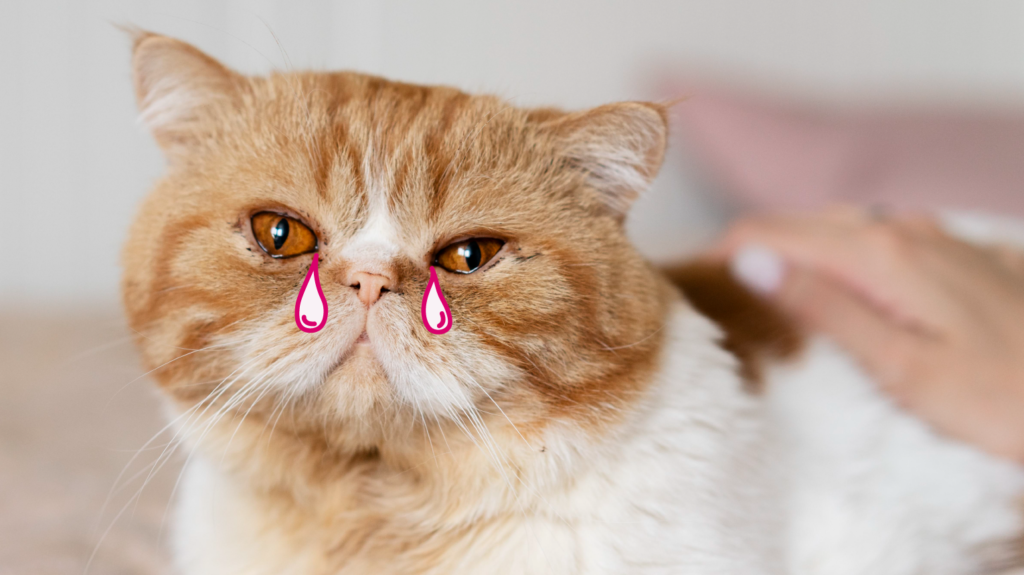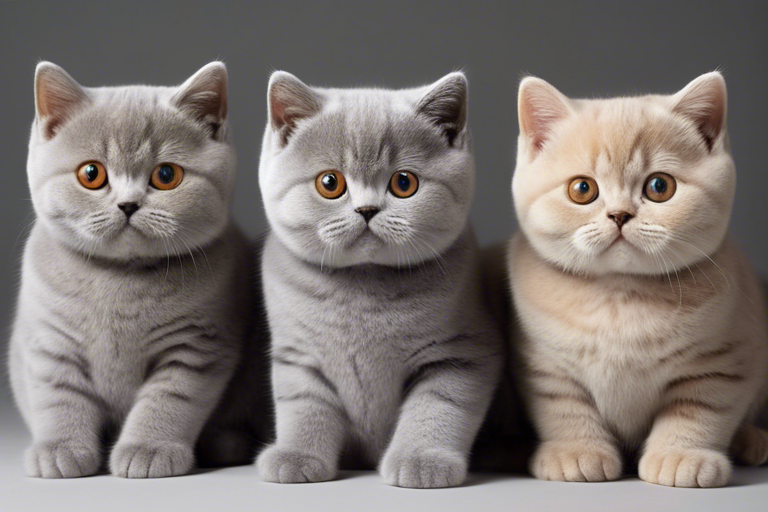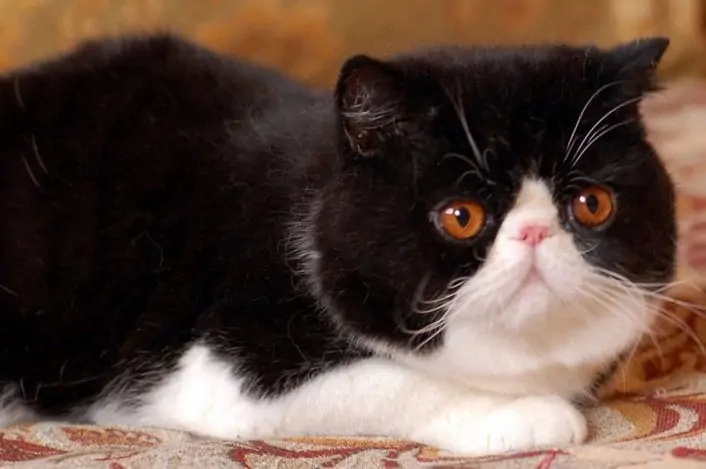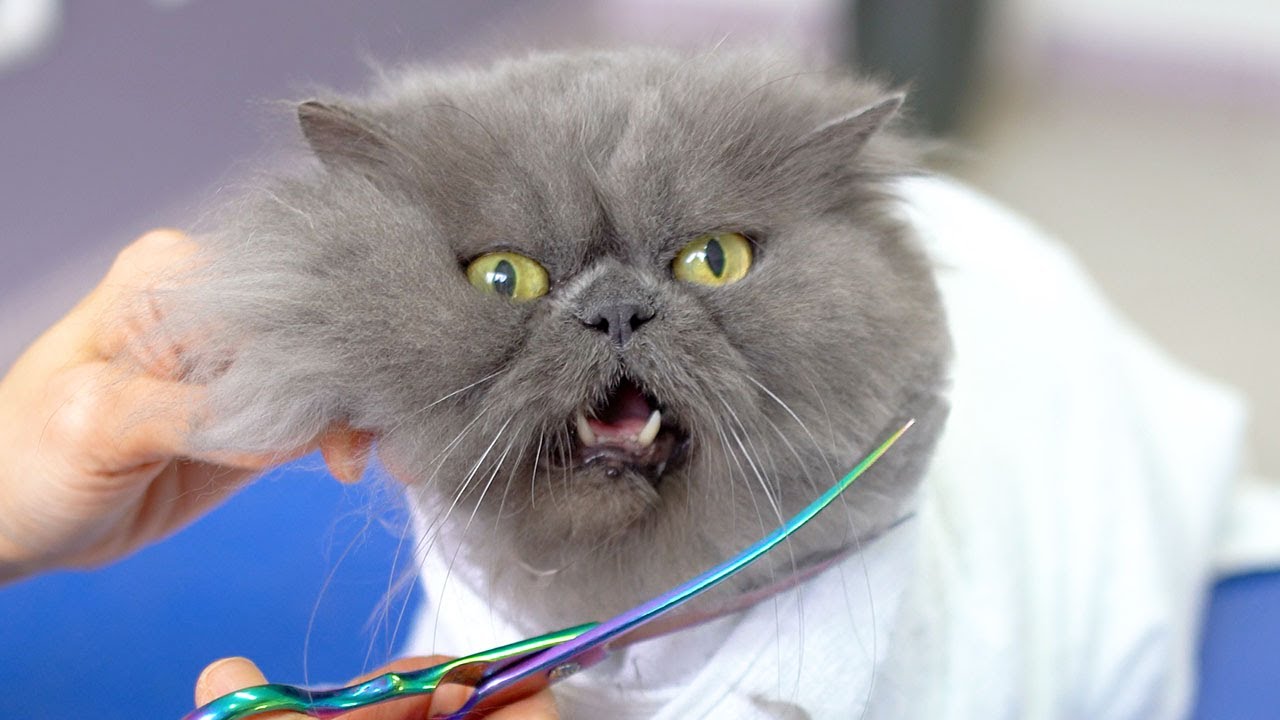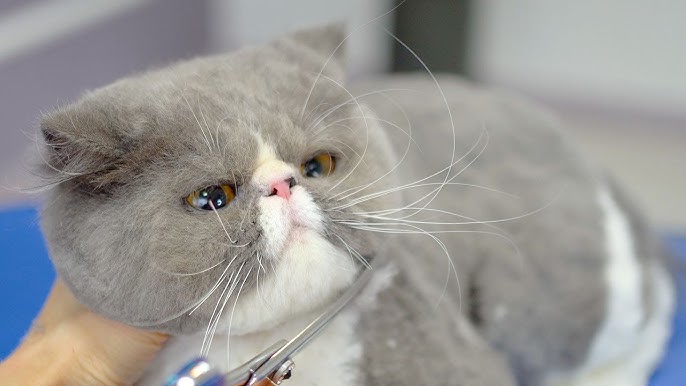Have you ever heard of exotic shorthair cats? These adorable felines have been gaining popularity among cat fanciers in recent years. With their unique appearance and lovable personalities, it’s no wonder why they’ve become such a hit. But what are the disadvantages of exotic shorthairs?
First, let’s take a brief look at the history of this breed. Exotic shorthair cats were first bred in the 1950s by crossing Persian cats with American Shorthairs. The result was a cat with the luxurious coat of a Persian but with a shorter, easier-to-maintain coat.
One reason for their popularity is their resemblance to Persian cats but without the high maintenance grooming needs. They have a similar affectionate and laid-back personality as well.
However, there are some differences between exotic shorthairs and Persians. Exotic shorthairs have a more rounded face due to their American Shorthair ancestry, while Persians have a flatter face. Persians tend to be more vocal than exotic shorthairs.
In terms of appearance and personality traits, exotic shorthairs are known for their flat faces, round eyes, and plush coats that come in various colors and patterns. They are also playful and enjoy toys as much as any other kitten or kitty.
Some owners report issues with breathing due to their facial structure. It’s important to keep up with regular vet check-ups to ensure your pet stays healthy.
Pros and Cons of Owning an Exotic Shorthair Cat
Low Maintenance Grooming Needs
One of the significant advantages of owning an exotic shorthair cat is their low maintenance grooming needs. Unlike other breeds, these cats have short hair, which requires minimal brushing and grooming. This feature makes them a perfect choice for busy owners who do not have much time to devote to pet care. However, it is essential to note that even though they have short hair, they still require some grooming to keep their coat healthy and shiny.
Affectionate and Loyal Nature
Exotic shorthair cats are known for their affectionate and loyal nature towards their owners. They love being around people and enjoy cuddling with them. These cats are also great companions for families with children as they are gentle and patient with kids. Moreover, they are social animals that get along well with other pets in the house.
Prone to Obesity and Health Issues
One of the disadvantages of owning an exotic shorthair cat is that they are prone to obesity and health issues. Due to their sedentary lifestyle, these cats tend to gain weight quickly if not exercised regularly. This issue can lead to various health problems such as diabetes, heart disease, joint problems, etc., which can be expensive to treat.
Can Be Expensive To Buy or Adopt
Another disadvantage of owning an exotic shorthair cat is that they can be quite expensive to buy or adopt compared to other breeds. The cost of buying one can range from $500-$1500 depending on factors such as age, gender, coloration, etc. Adopting one from a shelter may also come at a high price due to the breed’s popularity.
May Require Special Dietary Needs
Exotic shorthair cats may require special dietary needs due to their susceptibility to obesity and other health issues mentioned earlier. Therefore it is crucial to provide them with a balanced diet that meets their nutritional requirements. Owners should avoid feeding them with too many treats and limit their calorie intake to prevent obesity.
Health Issues Associated with Exotic Shorthair Cats
Breathing Difficulties Due to Their Flat Faces
Exotic shorthair cats are known for their unique appearance, which includes a flat face and short snout. While this may be cute and endearing, it can also lead to some serious health issues. One of the most common problems that affect shorthair cats is breathing difficulties. Because of their flat faces, these cats have smaller nasal passages than other breeds, making it harder for them to breathe properly. This can cause them to snore loudly or even struggle to catch their breath at times.
If you own an exotic shorthair cat, it’s essential to keep an eye on their breathing patterns and watch out for any signs of distress. If your cat seems to be struggling with breathing regularly, take them to the vet as soon as possible. Your vet may recommend treatments such as surgery or medication to help alleviate the problem.
Eye Problems Such as Cherry Eye or Tear Duct Overflow
Another issue that affects shorthair cats is eye problems. These cats are prone to developing conditions such as cherry eye or tear duct overflow due to the shape of their eyes and eyelids. Cherry eye occurs when a gland in the eyelid becomes inflamed and swollen, leading to a red lump in the corner of the eye. Tear duct overflow happens when tears cannot drain correctly from the eyes, causing discharge and irritation.
If you notice any signs of eye problems in your shorthair cat, such as redness, swelling, discharge, or excessive tearing, take them to the vet immediately. Your vet may prescribe medications or recommend surgery depending on the severity of the condition.
Skin Allergies and Infections Due To Excessive Folds In Skin
Exotic shorthair cats have many folds in their skin due to their unique appearance. While this may be adorable at first glance, it can also lead to skin allergies and infections. The folds in their skin can trap moisture, dirt, and bacteria, leading to irritation, itching, and infection.
To prevent skin problems in your shorthair cat, make sure to keep them clean and dry at all times. Regular grooming is essential for these cats to remove any trapped dirt or debris from their skin folds. If you notice any signs of skin irritation or infection, take your cat to the vet immediately for treatment.
High Risk For Polycystic Kidney Disease (PKD)
Finally, one of the most significant health risks associated with shorthair cats is polycystic kidney disease (PKD). This genetic condition causes cysts to develop on the kidneys over time, leading to kidney failure and other serious health issues.
If you own an exotic shorthair cat, it’s crucial to have them screened regularly for PKD. Your vet may recommend blood tests or ultrasounds to check for signs of the disease. If your cat does have PKD, your vet will work with you on a treatment plan that may include medication or dietary changes.
Polycystic Kidney Disease and its Prevalence in Exotic Shorthairs
Definition of PKD
Polycystic Kidney Disease (PKD) is a genetic disorder that affects feline kidneys. It is caused by the growth of multiple cysts on the kidneys, which eventually leads to kidney failure. The cysts grow slowly over time, and as they increase in size, they replace normal kidney tissue.
How it Affects Feline Kidneys
The cysts that form on the kidneys due to PKD disrupt their normal function. As the cysts grow larger, they reduce the amount of functioning kidney tissue available to filter waste products from the blood. This results in a build-up of toxins in the cat’s body, leading to symptoms such as vomiting, weight loss, lethargy, and dehydration.
High Prevalence Rate Among Exotic Shorthairs
Exotic shorthairs are one breed of cats that are particularly susceptible to PKD. According to research studies conducted on various breeds of cats worldwide, exotic shorthairs have an extremely high prevalence rate for PKD. Around 40% of all exotic shorthairs carry at least one copy of the gene responsible for PKD.
This high prevalence rate among exotic shorthairs can be attributed to selective breeding practices aimed at achieving certain physical traits such as a round face and short snout. These characteristics make them more prone to developing health issues like hip dysplasia, brachycephalic syndrome, portosystemic shunt and PKD.
Genetic Testing Options Available
Genetic testing is available for cats suspected of carrying the gene responsible for PKD. DNA samples can be taken from cats through blood or cheek swabs and sent off for analysis at specialized laboratories.
The test results will identify whether or not a cat carries one or two copies of the gene responsible for PKD. Cats with two copies of the gene are at a higher risk of developing PKD and may require more frequent monitoring by a veterinarian.
It is important to note that while genetic testing can identify whether or not a cat carries the gene responsible for PKD, it cannot predict when or if the cat will develop the disease. Regular check-ups with a veterinarian are necessary to monitor cats that test positive for the gene.
Heart Muscle Issues and Other Common Health Problems
Exotic Shorthairs and Hypertrophic Cardiomyopathy (HCM)
Exotic shorthairs are known for their adorable, flat faces and plush coats. However, they are also prone to certain health problems that owners must be aware of. One of the most common health issues in exotic shorthairs is hypertrophic cardiomyopathy (HCM).
HCM is a heart muscle disease that causes the walls of the heart to thicken, making it difficult for blood to flow properly through the heart. This condition can lead to serious complications like difficulty breathing, rapid breathing, and even sudden death.
Studies have shown that HCM is prevalent in exotic shorthairs. One study found that up to 40% of all cases of HCM in cats were found in this breed. This means that owners must be vigilant about monitoring their cat’s heart health and watching out for any symptoms.
Symptoms of HCM
Symptoms of HCM can vary depending on the severity of the condition. Some cats may not show any signs at all until it reach an advanced stage. However, there are several signs that owners should look out for:
Rapid or labored breathing
Difficulty breathing
Weakness or lethargy
Loss of appetite
Sudden collapse or fainting
If you notice any of these symptoms in your exotic shorthair, it’s important to take them to a vet right away for testing.
Other Common Health Issues
In addition to HCM, exotic shorthairs are also prone to other common health issues like dental problems and ear infections. These conditions can cause discomfort and pain for your cat if left untreated.
Dental problems can range from mild tartar buildup to severe periodontal disease which can lead to tooth loss and infection. Ear infections are also common due to their small ear canals and susceptibility to heat and moisture.
It’s important to have your exotic shorthair checked regularly by a vet to ensure that any health issues are caught early on. Blood testing and regular check-ups can help detect any problems before they become severe.
Maintaining a Healthy Life for Your Exotic Shorthair
To maintain a healthy life for your exotic shorthair, it’s important to take preventative measures like feeding them a balanced diet, providing regular exercise, and keeping their environment clean. Scheduling annual check-ups with a veterinarian is crucial in detecting any health problems early on.
Grooming and Care Requirements for Exotic Shorthair Cats
Brushing Frequency Needed for Their Short Coats
Exotic Shorthair cats are known for their short, dense coats that require minimal grooming compared to other breeds. However, this does not mean that they do not need any grooming at all. Regular brushing is still necessary to keep their coat healthy and shiny.
It is recommended to brush an Exotic Shorthair’s coat at least once a week using a soft-bristled brush or a rubber grooming glove. This will help remove loose hair and prevent matting. Brushing also stimulates blood flow and distributes natural oils throughout the coat, keeping it moisturized.
In addition to regular brushing, it is also important to trim their nails every two weeks and clean their teeth regularly. Neglecting these tasks can lead to health problems such as painful ingrown nails or dental issues.
Bathing Requirements
Exotic Shorthairs do not need frequent baths as they are capable of self-grooming. However, there may be instances when bathing is necessary such as when they get into something dirty or smelly.
When bathing your cat, use lukewarm water and a gentle shampoo specifically made for cats. Avoid getting water in their ears or eyes as this can cause discomfort or infections.
After the bath, dry your cat thoroughly with a towel or blow dryer set on low heat. Make sure they are completely dry before letting them outside or exposing them to cold temperatures.
Cleaning Folds on Face, Nose, Eyes, Ears, etc.
One of the unique features of Exotic Shorthair cats is their flat face with folds around the nose and eyes. While these folds add to their adorable appearance, they can also trap dirt and bacteria if left uncleaned.
To prevent infections and skin irritation, it is important to clean your cat’s facial folds regularly using a damp cloth or cotton ball. Pay extra attention to the crevices around their nose and eyes as these areas are more prone to buildup.
Exotic Shorthairs are also prone to ear infections due to their small ears and heavy ear flaps. Clean their ears regularly using a veterinarian-recommended cleanser and avoid using cotton swabs which can push debris further into the ear canal.
Overall, while Exotic Shorthair cats may require less grooming than other breeds, they still need regular care and attention to maintain their health and appearance. By following these grooming tips, you can ensure that your furry friend stays happy and healthy for years to come.
Diet, Exercise, and Routine Care for Exotic Shorthairs
Dietary Restrictions Due to High Risk of Obesity
Exotic shorthairs are known for their love of food. They tend to overeat, which can lead to obesity and other health problems. Therefore, it is important to monitor their diet closely and feed them high-quality food in appropriate portions.
Consult with your veterinarian about the best type of food and how much they should be eating based on their weight, age, and activity level. Avoid giving them table scraps or human food as treats since this can cause digestive issues.
It is also essential to keep track of their weight regularly. If you notice that your exotic shorthair is gaining too much weight or becoming overweight, adjust their diet accordingly by reducing the amount of food they consume daily.
Regular Exercise Routine Required
Like all cats, exotic shorthairs need regular exercise to maintain good health. Without proper exercise, they may become lazy or bored and develop behavioral problems such as scratching furniture or chewing on household items.
To ensure that your exotic shorthair gets enough exercise each day, create an exercise routine that includes interactive toys such as feather wands or laser pointers. You can also encourage them to play by hiding treats around the house or setting up an obstacle course for them.
In addition to indoor activities, consider taking your cat outside on a leash for some fresh air and sunlight. However, be sure to supervise them at all times since exotic shorthairs are not known for being great climbers or jumpers.
Routine Care Includes Litter Box Cleaning, Nail Trimming
Routine care is crucial. This includes litter box cleaning and nail trimming.
Exotic shorthairs are generally clean animals but require a clean litter box at all times. Aim to clean it at least once a day and replace the litter completely every few weeks. This will help prevent the buildup of bacteria that can cause infections or other health issues.
Nail trimming is another essential part of routine care. Exotic shorthairs have sharp claws that can easily scratch furniture or people, so keeping their nails trimmed is important for both their safety and yours. You can trim their nails at home using special cat nail clippers or take them to a professional groomer if you’re not comfortable doing it yourself.
Lifespan Comparison with Other Cat Breeds
Exotic Shorthair’s Average Lifespan Compared to Other Breeds
They tend to live an average of 12 to 15 years. However, this can vary depending on several factors such as genetics, lifestyle, and overall health. In comparison to other cat breeds, the lifespan of exotic shorthairs is relatively similar. For instance, Persian cats have a lifespan ranging from 12-17 years while Siamese cats can live up to 20 years.
Factors That Can Affect Lifespan
Several factors can affect the lifespan of an exotic shorthair or any other cat breed for that matter. One major factor is genetics. If a cat has inherited certain diseases from their parents, their lifespan may be shorter than expected. Lifestyle also plays a significant role in determining a cat’s life expectancy. For example, cats that are kept indoors and given proper nutrition tend to live longer than those that are allowed outdoors and fed poor quality food.
Another factor that can affect a cat’s lifespan is their overall health status. Regular visits to the vet for check-ups and vaccinations can help detect any underlying illnesses early enough before they become severe and reduce your feline friend’s life expectancy.
How To Increase Lifespan Through Proper Care
As mentioned earlier, proper care plays a vital role in increasing your exotic shorthair’s life expectancy. Here are some tips on how you can take care of your furry friend:
Provide Nutritious Food: Feeding your cat high-quality food enriched with essential nutrients will go a long way in ensuring they stay healthy and live longer.
Regular Exercise: Encouraging playtime activities such as chasing toys or playing with laser pointers will not only keep your cat active but also improve their mental health.
Regular Vet Visits: Regular visits to the vet for check-ups, vaccinations, and early detection of any illnesses can help increase your cat’s lifespan.
Dental Care: Brushing your cat’s teeth regularly helps prevent dental issues such as tooth decay and gum disease, which can affect their overall health.
Grooming: Regular grooming helps keep your cat clean and healthy while also preventing hairballs that may cause digestive problems.
Genetic Predispositions for Heart Disease
Understanding Genetic Predisposition
Genetic predisposition refers to the likelihood of inheriting certain genes that increase the risk of developing a particular disease. It is important to note that having a genetic predisposition does not necessarily mean that an individual will develop the disease, but it increases their chances significantly.
How it Affects Exotic Shorthairs
Exotic shorthairs are generally prone to various health issues, and heart disease is one of them. The flat faces of exotic shorthairs are due to a genetic mutation that affects their skull structure. This mutation can also affect their hearts, leading to hypertrophic cardiomyopathy (HCM), which is a common type of heart disease in cats.
HCM occurs when the walls of the heart become thickened, making it difficult for blood to flow through properly. As a result, the heart has to work harder to pump blood throughout the body, leading to various symptoms such as coughing, breathing difficulties, and fainting.
Importance of Genetic Testing Before Breeding
Responsible breeders should conduct genetic testing on their breeding cats before mating them. This helps identify any potential genetic disorders that may be passed down to their offspring. By knowing which genes are present in their breeding stock, they can make informed decisions about which cats should be bred together.
Breeders can also use this information to develop breeding programs aimed at minimizing or eliminating certain genetic disorders in future generations.
Breeding Guidelines for Responsible Breeders
Responsible breeders need to take extra care in selecting suitable mates. They should avoid breeding two cats with extremely flat faces as this increases the risk of passing down genes associated with HCM and other health problems.
Instead, breeders should aim for moderate facial features and select cats with no history of heart disease in their lineage. They should also conduct regular health screenings on their breeding cats to ensure that they are healthy and free from any genetic disorders.
Where to Adopt or Buy an Exotic Shorthair Cat?
Adoption options from shelters and rescue organizations
Adopting a cat from a shelter or rescue organization is an excellent way to provide a home for an animal in need. Many shelters have exotic shorthairs available for adoption, and they often come with several benefits. Adoption fees are typically lower than buying from a breeder, and the cats are already spayed/neutered, vaccinated, and microchipped.
When considering adopting an exotic shorthair, it’s essential to research the shelter or rescue organization thoroughly. Look for reputable organizations that prioritize the welfare of their animals. Ensure that they provide proper care for their cats and have good reviews from previous adopters. It’s also crucial to ask questions about the cat’s history, personality, and any medical issues.
Reputable breeders and their characteristics
Suppose you’re interested in purchasing an exotic shorthair from a breeder. In that case, it’s crucial to find a reputable one who prioritizes the health and well-being of their cats over profit. A good breeder will be knowledgeable about the breed and its specific needs.
Before making any commitments with a breeder, do your research thoroughly. Check out their website or social media pages to see how they operate. A reputable breeder should be transparent about their breeding practices, including genetic testing for potential health issues.
It’s also essential to visit the cattery before making any decisions. This will allow you to observe how the cats are treated and housed. Pay attention to cleanliness levels and whether there are enough resources (food/water bowls, litter boxes) available for all of the cats.
Online marketplaces and potential risks
Online marketplaces such as Craigslist or Facebook Marketplace can offer convenience when looking for an exotic shorthair cat; however, they come with considerable risks. There is no guarantee that sellers are reputable or that the cat is healthy and well-cared for.
It’s crucial to exercise extreme caution when considering purchasing a cat from an online marketplace. Always ask for photos, videos, and medical records before making any commitments. If possible, insist on meeting the seller in person to see the cat before finalizing the purchase.
Questions to ask when adopting or buying
Whether you’re adopting or buying an exotic shorthair cat, it’s essential to ask questions about their history, personality, and health. Here are some critical questions to consider:
What is the cat’s age?
Has the cat been spayed/neutered?
Are there any known medical issues?
What type of food does the cat eat?
How often does the cat receive veterinary care?
Is the cat socialized with other animals/children?
Asking these questions will give you a better understanding of what you can expect from your new pet. It will also help ensure that you’re making a responsible decision that benefits both you and your new feline friend.
Weighing the Pros and Cons of Owning an Exotic Shorthair
Summary of Pros and Cons Discussed Earlier in the Post
Exotic Shorthairs are a popular breed among pet owners due to their unique appearance, affectionate personality, and low-maintenance coat. However, like any other breed, they also have their disadvantages that potential owners should consider before bringing one home.
One of the main drawbacks of owning an Exotic Shorthair is its weight. These cats tend to be on the heavier side, which can lead to health problems such as joint pain and diabetes. They are not as active as some other breeds, so they require less exercise but may still need help managing their weight through portion control and a healthy diet.
Another disadvantage is that while Exotic Shorthairs are generally quiet cats, they can be very needy. They may become anxious or destructive if left alone for long periods of time or if they do not receive enough playtime and social interaction with humans.
Lastly, potential owners should be aware that Exotic Shorthairs can have eye problems due to their flat faces. This includes issues such as excessive tearing or difficulty blinking, which can lead to infections or corneal ulcers if not treated promptly.
Despite these disadvantages, many people still choose to bring an Exotic Shorthair into their homes because of the advantages they offer.
Factors to Consider Before Deciding on Owning an Exotic Shorthair
Before deciding to bring an Exotic Shorthair into your home, there are several factors you should consider:
Your lifestyle: Are you able to provide enough attention and playtime for a cat that craves human interaction? Can you commit to regular grooming sessions for their coat?
Your living situation: Do you live in a small apartment where space may be limited? Are there any restrictions on pets in your building or neighborhood?
Your budget: Can you afford the cost of regular veterinary visits, food, and any potential medical expenses that may arise?
Your experience with cats: Have you owned a cat before? Are you familiar with the needs and behavior of different breeds?
It is important to do your research and understand the breed’s needs before making the decision to bring one into your home. Exotic Shorthairs require a lot of attention and care, so it is crucial to ensure that you can provide for them properly.
Importance of Researching and Understanding the Breed’s Needs
Researching and understanding the needs of an Exotic Shorthair is crucial before bringing one into your home. This includes their dietary requirements, grooming needs, exercise routine, and medical concerns.
Exotic Shorthairs have a low-maintenance coat that requires minimal brushing but may still need occasional baths or nail trims. They also tend to be less active than some other breeds but still benefit from playtime and exercise through interactive toys or short walks around the house.
In terms of diet, Exotic Shorthairs should be fed high-quality cat food that meets their nutritional needs without overfeeding them. Portion control is key to managing their weight and preventing health issues down the line.
Lastly, owners should be aware of any potential medical concerns related to their breed. Regular check-ups with a veterinarian can help catch any issues early on and prevent them from becoming more serious.
Further Research on Exotic Shorthairs
After exploring the pros and cons of owning an exotic shorthair cat, discussing their health issues and care requirements, and comparing their lifespan with other cat breeds, it is clear that these cats require a lot of attention and care. However, despite their adorable appearance, there are some disadvantages to owning an exotic shorthair.
One significant disadvantage is the prevalence of polycystic kidney disease in this breed. This genetic condition can lead to kidney failure and even death if not diagnosed early. Another common issue is heart muscle problems that can also be fatal if left untreated.
Grooming and care requirements for exotic shorthairs can also be a challenge. These cats have thick fur that requires regular brushing to prevent matting. They are also prone to dental issues that require daily teeth cleaning.
If you’re considering adopting or buying an exotic shorthair cat, it’s essential to do your research beforehand. Understand the potential health risks associated with this breed and ensure you have the time and resources necessary to provide proper care.
FAQs:
1. Are Exotic Shorthairs good pets?
Yes, they make great pets! They are affectionate, playful, and love to cuddle.
2. What health problems do Exotic Shorthairs have?
Exotic Shorthairs are prone to polycystic kidney disease (PKD), heart muscle issues, dental problems, respiratory infections, and obesity.
3. How often should I groom my Exotic Shorthair?
Exotic Shorthairs need daily grooming sessions to keep their coat healthy and prevent matting.
4. Do Exotic Shorthairs get along with children?
Yes! They are known for being gentle with children and make great family pets.
5. Where can I adopt or buy an Exotic Shorthair?
You can adopt from local animal shelters or rescue organizations. You can also find reputable breeders online or through cat shows.
6. How long do Exotic Shorthairs live?
Exotic Shorthairs have an average lifespan of 12-15 years, which is similar to other cat breeds.
In conclusion, owning an exotic shorthair cat comes with its challenges, but they make great pets for those willing to provide the necessary care and attention. It’s crucial to understand their potential health issues and care requirements before bringing one into your home. Do your research, find a reputable breeder or adoption agency, and give these adorable cats the love they deserve!

